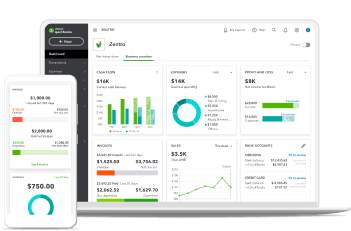From 1 July 2017, small businesses will have less GST information to report on their Business Activity Statement (BAS). Let’s take a look at how BAS reporting is about to get a whole lot simpler.

What is Simpler BAS
What is simpler BAS?
As a result of listening to the concerns of small businesses, tax professionals, industry associations and software providers, the Australian Taxation Office (ATO) is working towards reducing GST compliance costs for small businesses.
The ATO is reducing the amount of GST information required for the Business Activity Statement (BAS) to simplify GST bookkeeping and reporting requirements.
What stays on the simpler BAS?
From July 1 2017 you’ll only need to report:
- Total sales
- GST on sales
- GST on purchases
What is removed from BAS?
From July 1 2017 you’ll no longer need to report:
- Export sales
- GST-free sales
- Capital purchases
- Non-capital purchases
Does this apply to my business?
If your business is registered for GST, and you have an annual GST turnover of less than $10 million, you’re eligible for simpler BAS.
Do I still need to keep records?
Yes. You need to keep records, such as invoices, as proof of any claims you make in your BAS lodgements.
How often do I need to report GST?
However frequently you report now (e.g. monthly, quarterly or yearly) is how you’ll continue to report after July 1 2017.
Simple BAS means simpler GST?
Simpler BAS will make it easier for businesses to do their bookkeeping to classify and code GST transactions. To help you gain the most benefit from simpler BAS, QuickBooks Online is introducing simplified GST classification. This simplified method allows you to code your GST transactions as:
- GST
- GST Free
- Out of Scope
These codes are no longer required for GST transactions:
- Export Sales
- Input Tax
- GST on capital purchases
- GST on non-capital purchases
- GST Free capital purchases
- GST Free non-capital purchases
This change will reduce the complexity to run your business day-to-day and enable you to be compliant with BAS reporting requirements.
I’m only seeing GST, GST Free and Out of Scope tax codes when I try to create a sales or a purchase transaction. Does this mean I’m already on simpler GST?
Yes, this means you’re already on simpler GST. You don’t need to do anything. After we introduced simpler GST, any new customer creating a file in QuickBooks Online would be set to simpler GST by default.
NOTE: If you are not eligible for simpler BAS, we recommend you to contact our Care team to switch to detailed GST before you create any transactions.
If I’m an existing customer, how can I switch to simpler GST?
The functionality to switch to simpler GST is being rolled out to existing customers in batches over the next few weeks. Once made available to you, you can switch to simpler GST through the QuickBooks Online GST centre settings page.
- Click on GST on the left menu
- Click on Edit GST on the top right hand corner
- Click on Edit settings
- Select Simpler under GST codes option
Once you switch, you’ll see only the simplified GST codes while creating transactions.
NOTE: QuickBooks Online is not a tax or BAS agent. If you’re relying on advice from a BAS or tax agent, it’s recommended that you consult with them before you switch.
What will happen to my default GST settings once I switch?
You or your tax/BAS agent may need to set up default GST codes on chart of accounts, products and services, bank rules and recurring transactions. We will map any default GST codes on chart of accounts, products and services, and bank rules to the simplified GST codes. However, you’ll need to map the GST codes on recurring transactions, if any, to the new codes.
IMPORTANT NOTE: If you decide to revert back to detailed GST codes after switching to simpler GST, you will lose the default GST codes set on a chart of accounts, products and services, bank rules, and recurring transactions. You’ll need to revisit each of these sections to reset the GST default settings.
What will happen to my existing transactions if I switch to simpler GST?
There will be no impact on your existing transactions when you switch to simpler GST. You can view the transactions and run reports as you normally would. You can also edit your existing transactions. While editing, if you need to change the tax codes, you will need to choose from the list of simplified GST codes and will not be able to select the old detailed GST codes.
What will happen to BAS reports once I switch to simpler GST?
There are three BAS related reports in QuickBooks Online:
- BAS detailed report – There will be no change to BAS detailed report. You will continue to see transactions grouped by tax codes. If you have existing transactions that use the detailed GST codes, the BAS detailed report will continue to report these transactions under the detailed GST codes.
- BAS summary report – Once you switch to simpler GST, the BAS summary report will only display fields relevant to simpler BAS – G1, 1A and 1B with a few additional details. You will not see the fields that are removed from BAS in this report as you’re no longer required to report those fields.
- BAS form – We are actively working on simplifying the BAS form in QuickBooks Online. We anticipate that this change will happen before the deadline for the next quarterly BAS. In the meantime, once you switch to simplified GST, we will populate 0 values for fields G2, G3, G10 and G11.
I still haven’t submitted my BAS for the quarter ended June 30 or a prior period. Can I switch to simpler GST now?
Please refer to ATO website here that outlines the transition plan.
How do I switch to detailed GST if I don’t want to be in simpler GST?
Remember, if you’re eligible for simpler BAS, you’ll be fully compliant if you’re on Simple GST and our testing has proved that small businesses find it much easier to code GST transactions when they use simplified GST codes. However, if you want to switch to detailed GST, you can do so through QuickBooks Online Customer Care.
IMPORTANT NOTE: If you’ve set default GST codes on chart of accounts, products and services, bank rules and recurring transactions, please be aware that you will lose these default settings when you switch and the action cannot be rolled back. You’ll need to visit each of those sections to reset the GST defaults. There will be no impact on existing transactions.
What will happen to BAS reports once I switch to detailed GST?
- BAS detailed report – There will be no change to BAS detailed report. You will continue to see transactions grouped by tax codes in the BAS detailed report. If you have existing transactions that use the detailed GST codes, the BAS details report will continue to report the transactions under the detailed GST codes.
- BAS summary report – If you switch from simpler GST to detailed GST, the BAS summary report will only display fields relevant to simpler BAS – G1, 1A and 1B with a few additional details. You will not see the fields that are removed from BAS in this report as you are no longer required to report those fields.
- BAS form – We are actively working on simplifying the BAS form in QuickBooks Online. We anticipate that this change will happen before the deadline for next quarterly BAS. In the meantime, once you switch to detailed GST, we will populate appropriate values for fields G2, G3, G10 and G11.
What will happen to add-on app if I switch from detailed GST to simpler GST or vice versa?
If you switch from detailed GST to simpler GST or vice versa, you may need to refresh the add-on app connection to fetch the new set of tax codes from QuickBooks Online. You may also need to remap any default GST codes you may have set on the add-on app. Please refer to the add-on app documentation for more details.
Where can I find more information about simpler BAS?
You can find more information about simpler BAS on the ATO’s website.
Still have questions or need help with something?
Let us guide you to the quickest answer or QuickBooks expert. Contact us by:
- Phone 1800 046 038 (open: 8:30AM-6:30PM (AEST) Mon-Fri)
- Browse our expert FAQs
- Post a question to the community
Related Articles
Looking for something else?

TAKE A NO-COMMITMENT TEST DRIVE
Your free 30-day trial awaits
Our customers save an average of 9 hours per week with QuickBooks invoicing*
By entering your email, you are agree to our Terms and acknowledge our Privacy Statement.














